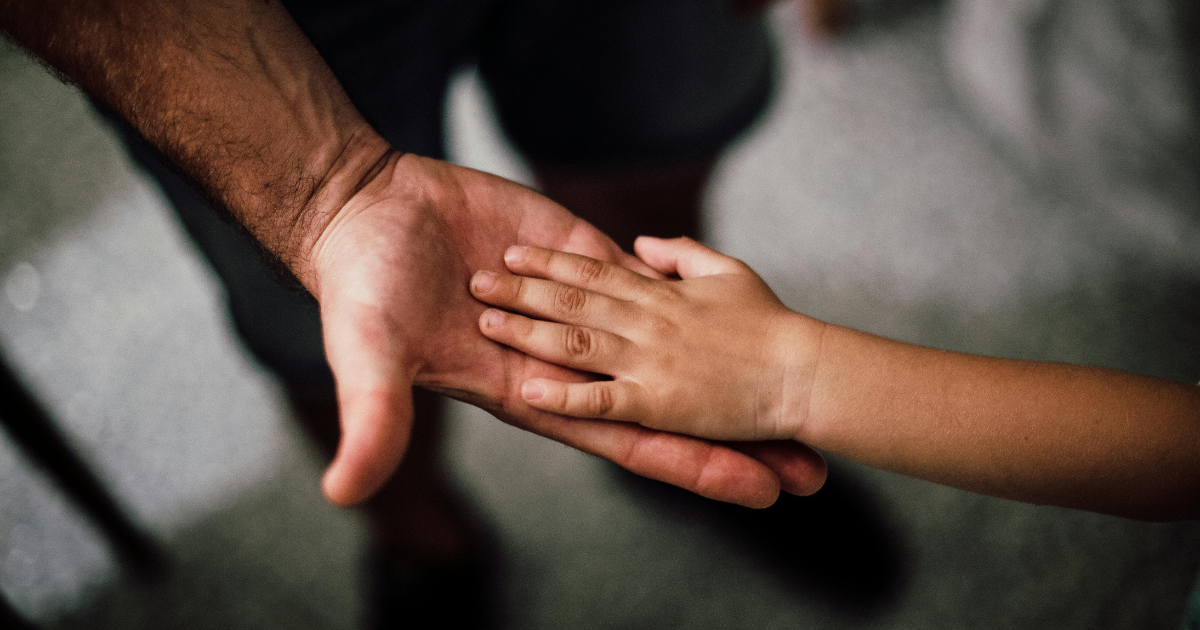If you grew up feeling unloved and often wondered, why does my dad hate me? You’re not alone. Many people struggle with distant or emotionally unavailable fathers, leading to confusion, self-doubt, and pain. Whether his behavior has been hurtful since childhood or has changed suddenly, understanding the possible reasons behind it can help you process your emotions and find ways to heal.
Why Do I Feel Like My Dad Hates Me?
Feeling like your dad hates you can stem from various factors, including:
- Parenting styles
- Emotional disconnect
- Past experiences
Studies show that roughly 30% of adults report having strained relationships with a parent, often due to unresolved childhood conflicts.
Mental Health Modesto
Signs of a Strained Relationship With Your Father
Father-child relationships gradually develop tension between them because of:
- Emotional disconnect
- Lack of communication
- Unresolved conflicts
Research has revealed that approximately one-quarter of adults maintain permanent tension with their parents but especially face this issue with their fathers. You can start recovery by learning to identify symptoms of damaged relationships with your father.
Emotional Distance and Lack of Affection
The inability of emotionally distant fathers to express love creates feelings among their children that they were neglected or rejected.
| Signs | Possible Reasons |
| Rarely says “I love you.” | Grew up in an emotionally reserved household |
| Avoids deep or personal conversations | Discomfort with vulnerability |
| Shows little physical affection (hugs, pats on the back) | Cultural or generational differences in parenting |
| Spends little quality time with you | Prioritizes work, stress, or personal struggles |
| Seems indifferent to your achievements | Lack of emotional awareness or unresolved issues |
Constant Criticism and Lack of Support
Frequent criticism, rather than encouragement, can lead to feelings of inadequacy and distance in the father-child bond.
| Signs | Possible Reasons |
| Always points out flaws instead of strengths | High expectations or perfectionist mindset |
| Rarely acknowledges your efforts | Struggles with emotional validation |
| Compares you negatively to others | Believes comparison is a form of motivation |
| Dismisses your opinions or choices | Control issues or generational gaps in values |
| Undermines your achievements | Personal dissatisfaction projected onto parenting |
A recurring experience of emotional detachment does not indicate that your father hates you because difficulties in conveying affection, along with a lack of emotional understanding, may be at play. Understanding these warning signs creates the first foundation, which leads to a better father-child connection.

Common Reasons for Tension Between Fathers and Children
The distance that develops between fathers and children occurs because of various factors.
- Deep-rooted issues
- Generational gaps
- Communication barriers
- Unresolved conflicts
Research demonstrates that families experience sixty percent of their disagreements because members possess conflicting values plus emotional communication issues. The identification of these elements allows proper intervention to enhance relationship quality.
Generational and Communication Differences
| Issue | Explanation |
| Different Upbringing, Different Values | Older generations emphasize discipline and duty, while younger ones focus on emotional expression and personal growth. |
| Limited Emotional Expression | Many fathers were raised to suppress emotions, making it difficult for them to show warmth or affection. |
| Technology and Lifestyle Gaps | Social media, evolving career paths, and changing societal norms create disconnects in perspectives. |
| Communication Styles Clash | Some fathers prefer authority-based conversations, while children may seek open and expressive dialogue. |
| Unspoken Expectations | Fathers may assume their children understand their love through actions rather than words, leading to misinterpretation. |
Unresolved Conflicts and Past Experiences
| Issue | Explanation |
| Lingering Childhood Discipline Issues | Strict parenting methods can leave emotional scars that affect the adult-child relationship. |
| Parental Pressure and Expectations | A father’s unfulfilled dreams may translate into unrealistic expectations for their children. |
| Misunderstandings Turned Into Resentment | Small disagreements, when ignored, can turn into deep-rooted conflicts over time. |
| Emotional or Physical Absence | Long work hours, divorce, or a lack of presence during childhood can create lasting emotional distance. |
| Comparison to Siblings or Peers | Favoritism or frequent comparison can damage self-esteem and trust. |
Steps Toward Resolution
- Address past conflicts with honest conversations.
- Set boundaries to create a healthier dynamic.
- Seek professional guidance if necessary.
Understanding these common sources of tension is the first step toward fostering a healthier relationship with your father.
Mental Health Modesto
Why Does My Dad Hate Me All of a Sudden?
When your father shows new behavior toward you, it can cause intense emotional distress while creating confusion. It is vital to analyze plausible factors that could affect his change in attitude despite initial assumptions of hatred. Father-child relationship tensions that emerge suddenly stem from external issues and communication problems instead of genuine dislike between the parties.
Possible Reasons for Sudden Change in Behavior
Similar to other people, fathers encounter life difficulties, including occupational stress, money problems, and health problems.
- His overwhelming situation sometimes leads him to express unwanted irritability toward you unknowingly.
- Recent arguments or lifestyle choices as well as different opinions on important matters, including career and relationship decisions, might lead to temporary strain between you and your father.
- The choices you make independent of his expectations will cause him to feel let down or he may struggle to communicate his hurt in an appropriate manner.
- Failed emotional regulation occasionally prevents fathers from addressing feelings through open communication, so they exhibit behaviors like seeking distance or showing irritation instead of dialogue.
- The dynamic changes within your family clan including problems with your mother, siblings, or extended family members might influence how your father connects with you.
- The changes during middle age or the aging process may cause fathers to display mood fluctuations and distancing behaviors in their relationships with others.

How to Improve Your Relationship With Your Father
Creating better relationships with your father depends on practice as well as receptive listening and direct conversations. Small persistent efforts toward healing an estranged father-daughter bond will produce lasting meaningful growth. Establishing healthy communication patterns with defined limits helps you develop a better respectful relationship.
Healthy Communication Strategies
Efficient communication stands as an essential factor for developing all relationships including your bond with your father. Practicing active listening plus clear emotional expression enables understanding between people thus leading to reduced relational conflicts.
| Strategy | Why It Matters |
| Active Listening | Shows respect and helps prevent misunderstandings. |
| Expressing Feelings Clearly | Encourages honest and open dialogue without accusations. |
| Finding Neutral Ground | Helps avoid unnecessary conflicts and promotes mutual understanding. |
| Giving Him Space | Allows him time to process emotions and prevents forced interactions. |
| Engaging in Shared Activities | Strengthens the bond by creating positive experiences together. |
Setting Boundaries and Managing Expectations
Having distinct limitations creates relationships that remain healthy along with being balanced. These boundaries create understanding between you and your father as well as respect between each other.
| Boundary/Expectation | Purpose |
| Respecting Privacy | Maintains a sense of independence for both parties. |
| Clarifying Expectations | Prevents frustration by setting realistic goals for the relationship. |
| Avoiding Unrealistic Standards | Reduces pressure and fosters mutual acceptance. |
| Agreeing to Disagree | Promotes respect even when perspectives differ. |
| Identifying Conflict Triggers | Helps minimize recurring disagreements and maintain peace. |
A strong father-child relationship isn’t built overnight, but small changes in communication and boundaries can lead to lasting improvements.
Seek Professional Help for Family Issues at Mental Health Modesto
The impact of damaged family relations on your mental state requires expert direction to find solutions and receive professional help. Mental Health Modesto provides expert counselors who assist families in handling difficult emotions improving communication skills and strengthening their relationships.
Professional therapists from our team can assist people through troubled family relationships by leading them to more wholesome relationships. The personalized support services of Mental Health Modesto can be explored by contacting us today.
Mental Health Modesto
FAQs
How do I tell if my dad doesn’t like me?
A difficult parental relationship can be detected when your father repeatedly fails to interact with you or speaks to you in hurtful ways or makes deliberate efforts to stay away from you. The signs include both emotional distance together with the absence of supportive behavior.
Why do I have a bad relationship with my dad?
Family tension can stem from generational gaps, unresolved conflicts, high expectations, or differences in communication styles. Childhood experiences and personality clashes can also play a role.
Is it okay to not like your dad?
Members of the same household might face problems because of conflicting generational roots, open arguments, excessive demands, or mismatched ways of speaking to one another. Childhood experiences together with personal differences between the individuals contribute to relationship issues.
How do I get my dad to like me?
A strong bond requires honest dialogue together with common experiences and insight into his thoughts and feelings. Our efforts will pay off when we express gratitude while giving him the required space he needs.
Can therapy help with father-child relationship issues?
Yes, therapy can guide in improving communication, resolving past conflicts, and setting healthy boundaries. A professional can help both of you work toward a more positive connection.





